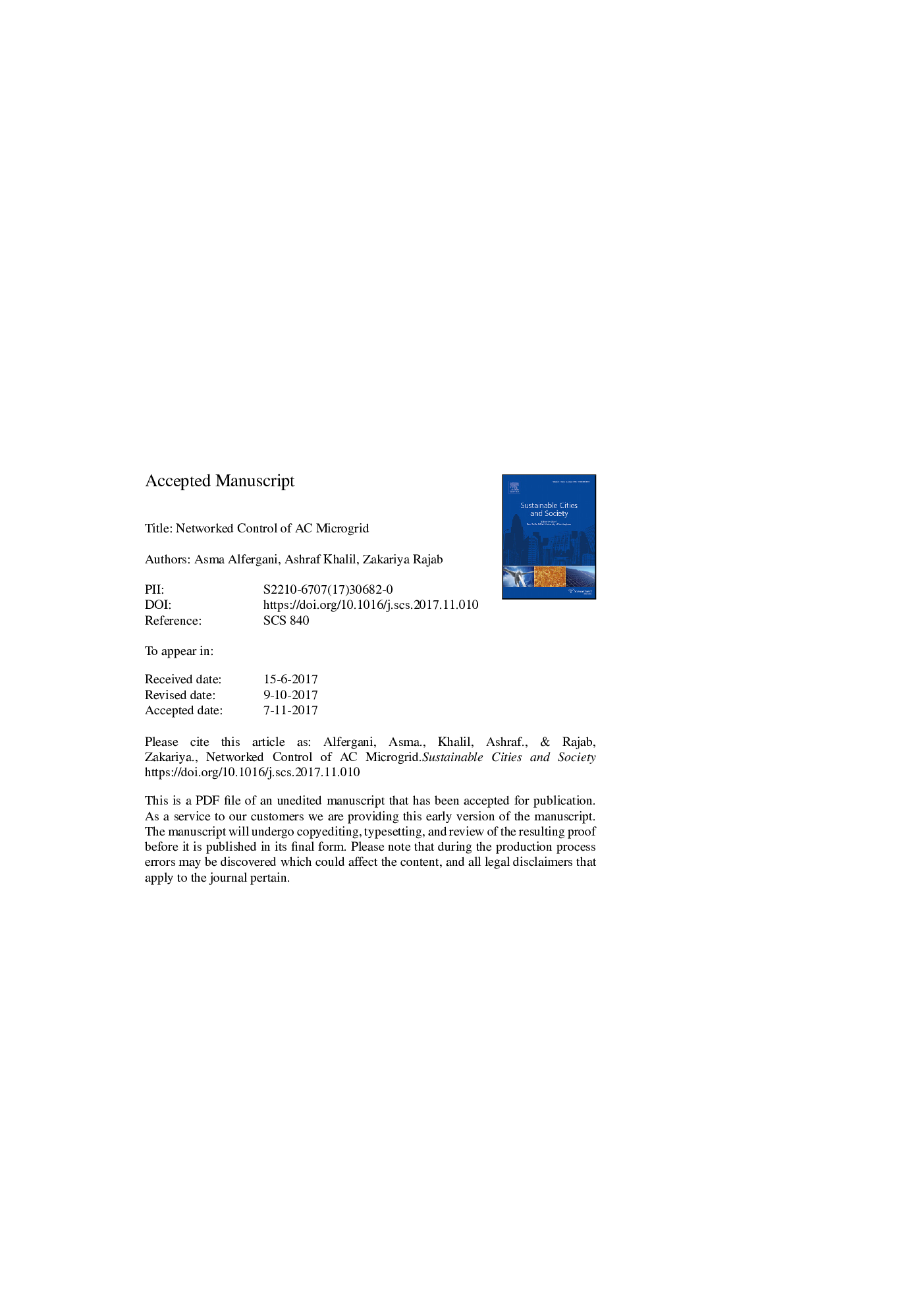| Article ID | Journal | Published Year | Pages | File Type |
|---|---|---|---|---|
| 6775713 | Sustainable Cities and Society | 2018 | 21 Pages |
Abstract
In Microgrids the renewable energy sources are connected through voltage sources inverters in parallel configuration to share the load. In this paper, the networked control of a PV-Based AC Microgrid is presented. The master-slave control strategy is implemented. Two control networks are considered, the CAN and the ZigBee, where the master controller sends the reference currents to the slave converters in the Microgrid through these two networks. As the control loop contains communication network, the system becomes a networked control system. A stability criterion in the form of Linear Matrix Inequalities based on Lyapunov-Krasovskii functional is used to calculate the maximum allowable delay bound for the system. As the availability of the Zigbee network cannot be guaranteed a combined master-slave/droop control strategy is implemented. Under the wireless control the master-slave control is implemented and in the case of a fault in the network or if the time delay is larger than the maximum allowable delay bound then the controller switches to the droop control. The results are tested through the nonlinear models implemented in the Matlab/Simulink and the TrueTime 2.0 simulator. The performance of the system is good and the current is evenly distributed between the inverters.
Related Topics
Physical Sciences and Engineering
Energy
Renewable Energy, Sustainability and the Environment
Authors
Asma Alfergani, Ashraf Khalil, Zakariya Rajab,
